#Find North A Memoir
Text
NORTH CAROLINA CULLOWHEE
Instinctually, you may feel the same pull to contribute past your own death. How else to explain the increasing popularity of the refrain: “When I die, no fuss. Just dig a hole and put me in it.”
A sensible request, indeed. Sending your corpse back into nature would seem to be both the most inexpensive and the most “green” option for your death. After all, the plants and animals we consume during our lives are grown and nourished by the soil.
A single acre of soil can contain 2,400 pounds of fungi, 1,500 pounds of bacteria, 900 pounds of earthworms, 890 pounds of arthropods and algae, and 133 pounds of protozoa. The soil teems with life, as does the dead body (inside its sausage casing of keratin, or dead skin). Microscopic sorcery takes place when a body is placed just a few feet deep in the soil. Here, the trillions of bacteria living inside you will liquefy your innards. When the built-up pressure breaks the seal of skin an orgiastic reunion takes place, in which our bodies merge with the earth.
We owe our very lives to the soil, and, as William Bryant Logan said, “the bodies we give it back are not payment enough.” Though, presumably, they are a start.
— From Here to Eternity: Traveling the World to Find the Good Death, Caitlin Doughty
#cullowhee#north carolina#Caitlin Doughty#Ask a Mortician#From Here to Eternity: Traveling the World to Find the Good Death#From Here to Eternity#books#bookblr#death positive#death positive movement#nonfiction#science#history#travel#anthropology#memoir#sociology#atypicalreads#deathcare#cw death#human composting#body recomposition#recomposition
4 notes
·
View notes
Note
I’m an Italian ger who’s being converted in an Ashkenazi community. I want to connect to my culture so badly!!! Is there any books you’d recommend, Italki food you love, or special rituals you do on Shabbat / during the week that are influenced by being Italian? I’d love to introduce more into my own practice!!
yeah! also this ended up being probably more in depth than you were asking for so apologies lmao.
so for some context (in case you or anyone reading this is not already aware), italki jews are a specific group of jews within italy. italki isn't like a nationality, so it's not a synonym for "italian jew", it's more like a regional identity. people from rome, naples, and venice are all italian, but they're also roman, neapolitan, and venetian. even if they move somewhere else, they'll likely still retain that regional identity. italy didn't become a unified republic until 1871, so culture and language and food varied a lot by region (which it still does), and that's true of jewish communities too, especially those that came from other places.
italki jews are jews who were brought to italy by the romans or traveled to rome to be merchants, and have been there since roman times. ashkenazi jews came during the middle ages, primarily settling in the north in places like venice. it's very worth noting that ashkenazim in italy, with the exception of one or two communities, have significantly different musical tradition, pronunciation, language, and food than other ashkenazi communities. sephardi jews came mostly after the expulsion from spain and portugal, though there were some living in sicily and southern italy.
with all that in mind, i'd definitely recommend doing some research into the demographics of the jewish community in the place you or your family is from. if you already live there, it should be much easier!
resources:
the jews in italy- their contribution to the development and diffusion of jewish heritage
cookbooks by edda servi machlin (she has several, but some are hard to find)
cucina ebraica
i highly recommend checking out torah.it. it's a fantastic archive of recordings and pdfs all about italian jewry. you will spend hours there and still have only scratched the surface.
rabbi barbara aiello also has a lot of different resources.
i highly recommend checking out the work of leo levi for research on italian jewish music. he spent years interviewing and recording chazzanut, scholars, and other community leaders and saved so many italian jewish melodies from complete extinction. (i believe all these recordings are uploaded to torah.it as well)
primo levi is another italian jew to research. he wrote many books that are available for purchase, including a memoir about his survival in auschwitz. there is also an institute in his name dedicated to the preservation, study, and celebration of italian judaism.
ensemble bet hagat put out an album of reimagined italian jewish music a few years ago and i believe they are also working on a second one. it is beautiful.
anyway that's probably enough nerding out, i can get to the more personal stuff and answering the actual questions you asked me now lmao.
right now, it's just me in my apartment so there's a lot of traditions i can't do, but if you have family or friends you can invite over, there are a lot of lovely traditions you can incorporate. i use a three branched candelabra for my shabbat candles. the middle candle is lit first and used to light the other two, as you would with hanukkah candles. if you have multiple people at your table, you can give them their own individual candles, in which case you will light the shamash (middle candle), pass it around the table for each person to light their individual candle, then the host will light the two other candles.
for food, i love making riso del sabato. it's a risotto dish with saffron and it is delicious. there's also a pumpkin ravioli in brown butter and sage sauce in cucina ebraica that is to die for.
104 notes
·
View notes
Text
On Reading and Books
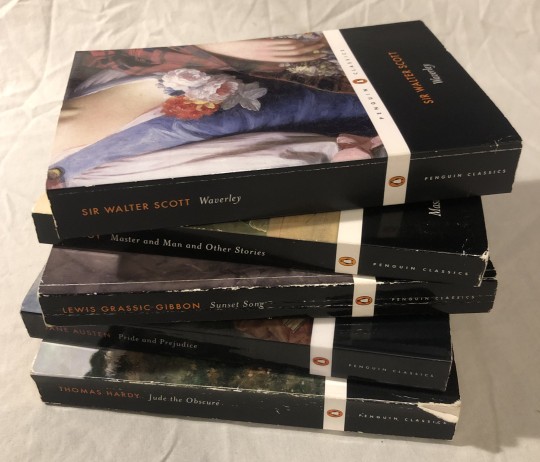

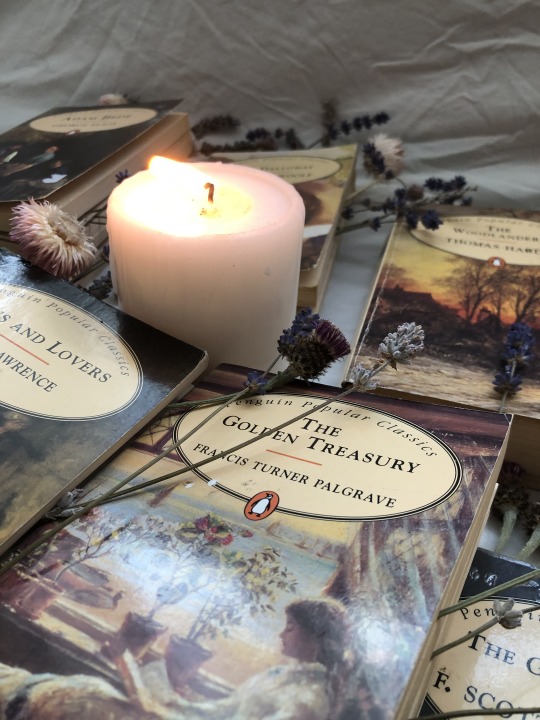
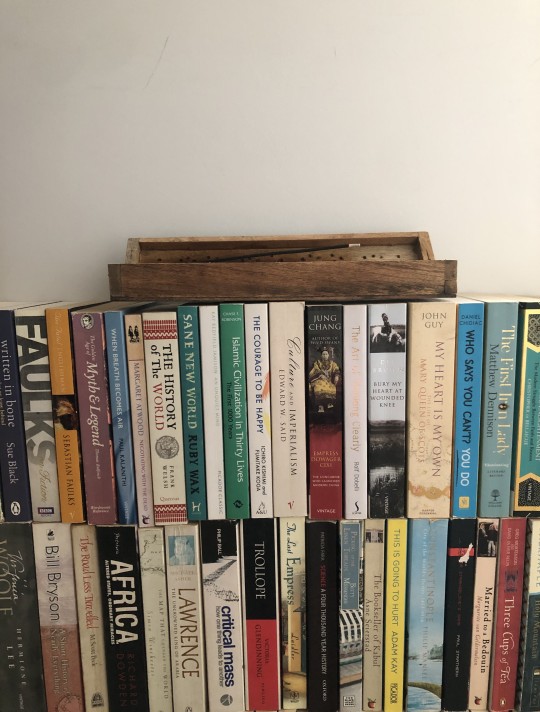
I took these pictures myself. Some of these books are old, some were just poorly handled over the years, and all were thrifted across the second-hand stores of Dublin.
Here I link every post I make on quotes, musings, and letter extracts from authors to do with books and reading. I keep it up to date.
I own books of all genres, so from fiction, you can expect: high fantasy, urban fantasy, classic literature, modern classics, short story anthologies, poetry, translated fiction, Asian fiction, Middle Eastern fiction, North African fiction, African fiction, Western fiction, Irish fiction, myth and folklore retelling, historical fiction, murder mysteries/crime fiction.
And from non-fiction, you can expect: European history, African history, Irish history, Asian history, Middle Eastern history, Islamic history, biographies and memoirs (of classic authors, world travellers, queens, and empresses), science, female health, culture and anthropology, self-help, psychology, on writing, on reading, myth and folklore, travel memoirs.
As such you can expect quotes from authors of various backgrounds.
These are short posts, made up of the extract ill quote from the author and then a picture I've taken of books from my home library.
Marcel Proust.
J. R. R. Tolkien.
Donna Tartt.
Franz Kafka.
Vladimir Nabokov.
William Faulkner.
Ian McEwan.
Italo Calvino.
Virginia Woolf.
Smell of Books.
Cats n Books
Charles Dickens.
Jules Verne.
About Me
Bookblr Masterlist
Bookish Thrift Finds Masterlist
I reblog bookish content and since I have a home library I also make bookish content myself; aesthetic book pics, reviews, recommendations, quotes, excerpts, hauls and cats.
#books#book quotes#chaotic academia#dark academia#light academia#reading#literature#fiction#nonfiction#home library#library#book rec#book recommendations#classic books#modern classics#thrifted books#middle east#north africa#irish#quotes#author quotes#classic authors#academia#lit#on reading#NEJJ QUOTES
61 notes
·
View notes
Text
Hello, Stranger. By Will Buckingham. Granta; 336 pages; £16.99
The Power of Strangers. By Joe Keohane. Random House; 352 pages; $28. Viking; £16.99
Fractured. By Jon Yates. Harper North; 348 pages; $28.99 and £20
ATTITUDES TO STRANGERS tend to follow a familiar pattern. Children are taught never to speak to unknown grown-ups, especially those regarded by their parents as untrustworthy. The onset of adolescence and young adulthood brings a bursting desire to interact with all sorts of people, particularly the kind who might not elicit family approval. Whether the resulting encounters are sexual or social, they confer a thrilling frisson of escape.
Social circles generally narrow again as people find life-partners, form households and produce offspring of their own. Time becomes scarce; new friendships are often based on sharing the burden of child care. Some people never recover the youthful zest for unforeseen liaisons. Professional duties swell even as parental ones diminish, and the inclination sags. In old age, even if curiosity and charisma remain undimmed, frailty makes new serendipitous connections harder to establish.
But that is not the whole story. In mid-life and beyond people can still experience the joy of a random meeting, however short, which somehow touches a nerve. That might involve nothing more than a smile, or a chance remark that hits an emotional spot; or it might be an unexpectedly deep conversation on a plane or train, a surge of mutual understanding that is life-affirming even if the interlocutor is never seen again. This aspect of the promise and peril of strangers has enticed storytellers—from the rapture of “Brief Encounter” and “Before Sunrise” to the ruin of “Strangers on a Train”. The knowledge that the exchange will be a one-off can permit a delicious, uninhibited frankness.
In the age of covid-19 and Zoom, the chronological pattern has been warped. Instead of their hazy possibilities and risks, strangers have assumed an all-too-literal role as a looming source of infection. During lockdowns they are officially to be avoided. Yet youngsters still long, dangerously, for the ecstasy of communion, not just with edgy individuals but anonymous crowds. People of all ages have come to miss the human stimulation of busy high streets or trains, or the comforting sense of fellowship in a cinema or theatre audience.
So this is an apt moment for three books about meeting strangers. Will Buckingham has written a moving memoir of finding solace, after the death of his life-partner, in travelling and talking in lands such as Myanmar that are culturally distant from his native England. Joe Keohane, an American journalist, argues that communicating empathetically with strangers is vital and potentially life-changing. Jon Yates, who runs a youth charity based in London, frets that deep fissures in Western societies are making it impossible for people to reach, even casually, between classes, religions, ethnicities and generations.
All three authors make sweeping generalisations about the evolution of human society, from hunter-gatherers to the age of Homer and beyond. But they are more interesting when they reflect, using personal experience or scientific research, on how people live and communicate now. In different ways, they all make two separate but related points. First, interacting meaningfully with a new person can bring huge rewards—but it is a skill that must be cultivated and can easily be lost. Second, the self-segregation of modern Western societies means that, for many people, conversing with some fellow citizens seems pointless, undesirable or outlandish. The second problem exacerbates the first: if you consider others beyond the pale, why make the effort to get to know them?
. . .
Mr Buckingham focuses on the pleasures and pitfalls of encounters in remote places where the stakes are lower because the acquaintanceships are bound to be temporary—in a holiday flat-share in Helsinki or while travelling through the Balkans. But, like the other two, he notes that wariness of unfamiliar people is neither new nor insuperable.
Faces look ugly when you’re alone
Mr Keohane and Mr Yates offer tips on befriending strangers. . . Mr Yates discusses the case for a kind of national social service that would encourage youngsters to mix with other groups and generations. Both have homely micro-solutions that readers can apply in daily relations—assume the best of others, remember that most have stories they are longing to tell, react philosophically when a friendly approach is rebuffed.
A telling point that none of the books captures is a paradoxical one: some of the most sophisticated forms of interaction between strangers occur in societies that are chronically divided. Think, for example, of rural Northern Ireland, or of parts of the former Ottoman Empire, such as Lebanon, where residents have lived in separate communal silos. In ways impenetrable to outsiders, the denizens of such places develop perfect antennae for the affiliation of a stranger and adjust their remarks accordingly. The ensuing exchanges occur within well-understood parameters—including a sense that social categories are resilient and pleasantries will not change them. But tact allows people from antagonistic camps to have amicable encounters and transactions.
All three authors are inclined to overstate the ability of brief interactions to stave off conflict. Yet at least this much is true: a capacity to engage with new people in civilised, humane and meaningful ways is a necessary condition for social peace, even if it is not a sufficient one. That points up a half-hidden cost of covid-19. Children educated on screen; teenagers bouncing off the walls; adults working at home; lonely pensioners: more or less everyone’s social skills have been atrophying, with consequences not only for individuals but, perhaps, for the fabric of society.
As lockdowns lift, people are now stumbling back into a world of accidental collisions, some eagerly, some queasily, most with an odd sensation of novelty after a year of hibernation. The lesson of these books is that the easing of restrictions is not just a coveted opportunity to reconnect with those you love and resemble. It also restores a freedom, long taken for granted even if little used, to come to know the profoundly different. ■
#there are definitely things in this article I don't fully agree with#but the core message#be civil when you're in public around strangers#is something I can agree with
43 notes
·
View notes
Text
These Are The Suede Songs 001: Early Recordings
Suede’s early trajectory is often described, especially by the band themselves, as “the world’s longest overnight success”. Four years of slogging the toilets of London, from playing humiliating gigs to, on one occasion, nobody at all, to appearing on the front page of Melody Maker, may sound quick, but in musical terms can feel like a lifetime. This was during the era of musical trends coming and going in rapid succession, a little like fashion microtrends today. Within those four years, Baggy and the Second Summer of Love, The Stone Roses and Spike Island, raves and ecstasy, made way for American grunge - precisely the opposite, and amongst this cultural shift, quietly grafting their way, were Suede.
Whilst there aren’t a great deal of surviving bootlegs or demos from this era, I still felt incredibly compelled to cover what I could find in a dedicated post. Research was rather fruitless at times, and I found much of the writing on this period of the band’s career to be marred (cough) by the insistence of male writers to throw all of their energy into a somewhat troubling obsession with what is perceived as the infamous Anderson-Frischmann-Albarn “love triangle”. I took to Twitter (or, blegh, X) to vent my frustrations, and received a reply from my friend Tasha who, much more eloquently than I, expressed how Justine Frischmann is viewed as merely an object in an interpersonal drama, rather than a fleshed out musician in her own right. Are women doomed to simply be accessories to their male counterparts? I find this disheartening when Frischmann is so integral to not only the Suede “story”, but, in my opinion, to what would go on to become the sound we all know, and love.
My analysis will frequently include my personal opinions, and should not be taken as definitive. Where necessary to the discussion of the songs, tidbits of info may be provided in order to “set the scene”. This series should not be used as a biography, but instead an exploration of a body of work. It will be by no means objective. I’m a massive Suede fan. I’ve travelled up and down the country for gigs, queued from as early as 6am for a coveted barrier spot, my cat is (in a roundabout way) named after an obscure Bloodsports-era B Side. I’m a self-professed fangirl. Having said this, I’ll do my best to not let this get in the way. And with all of the preliminaries seen to, we begin with,
Just A Girl (Anderson/Frischmann)
Though credited to Anderson-Butler, this light, airy folk ballad is reportedly the oldest surviving Suede tune, dating far before Bernard Butler joined. The version that appears online, and on the deluxe edition of the debut, is likely a home demo recorded by Brett Anderson and Justine Frischmann.
Anderson, in his memoir Coal Black Mornings, explains the titular girl, “north of England way”, is a Middlesborough-born Chemistry student called Emily, with whom he shared a flat on Daisy Bank road in Longsight, Manchester, in the year after he moved from Haywards Heath to the rainy industrial Northern city. ‘Just A Girl’ really couldn’t be set in any city other than Manchester. It describes the beginnings of a fond friendship, perhaps more, distinctly against the backdrop of a harsh, wet winter, overlooked by grey skies and red-bricked former warehouses. It’s the first, blushing, awkward flushes of young love. It’s leaving your University lectures at half past three when it’s already pitch dark. It’s when you say something you shouldn’t to the person you fancy after a few drinks. It’s huddling under the covers to stay warm, the excitement of closeness and companionship.
I typically have a complete, and near visceral, aversion to anything, musically or otherwise, that can be described as “twee”. Just A Girl, I feel, does undeniably dangle its harmonies and lyrical depictions of turning the page of one’s favourite book perilously close to the jaws of this accusation.Yet, I simply cannot bring myself to dislike it. Whilst musically competent, if a little naive, it’s sweet and genuine, and for that, it’s rather lovely.
There are already some allusions to Anderson’s later lyrical themes; the combination of love and tragedy as he laments how “it could have been so different if we’d only had more time”. Anderson, as we’ll explore, is rarely one to write a straight love song. No matter how they may seem, there is always a thread of tragedy, or drama, which underpins the affair and protects against it veering into saccharine territory.
For a few years now, I’ve cited the “ashtray eyes and bootlace ties” line to be a direct harbinger of some of Anderson’s later lyrics, most likely thinking of 2011's ‘Brittle Heart’,from his solo album Black Rainbows. However, this is in fact, lifted from Ian Drury’s ‘Sweet Gene Vincent’, more directly alluded to with Anderson and Frischmann lamenting how “Sweet Gene Vincent was never that good”.
According to Anderson, on regular rotation on the turntables of himself, Frischmann and Mat Osman around this time, were a band called The Lilac Time. Quoted in David Barnett’s comprehensive biography, Love And Poison, he describes them as “quite light, leftfield pop sort of thing (...) lots of major seventh chords”, and this influence is abundantly clear on ‘Just A Girl’, and would have possibly done even more had it made it to the studio around this time.
Frischmann’s, when she and Anderson met, record collection was largely comprised of folk music. In an irritating display of arrogance, Anderson insisted that these records would “no longer be listened to '' with him now in the equation. This decision would, of course, prove seminal in the trajectory of Frischmann’s music career in Elastica, as Anderson introduced her to spiky post-punk, however I find this to be rather ironic considering the undeniable folky nature of this particular song.
‘Just A Girl’ would later be re-recorded by Anderson and Richard Oakes, possibly around 1994, though reports of this vary, but not released to the public until a B-side was required for the single ‘Attitude’ in 2003. More on that (much) later, of course.
Natural Born Servant (Anderson-Butler)
‘Natural Born Servant’ is the actual first song in our timeline to be written by Anderson-Butler, and sees Suede as close to flirting with Baggy as they ever would.
As a result, this one comes across as rather trite, not to mention overlong, clocking in at six minutes and twenty seconds.
During my initial re-listen in my research for this project, I found myself incredibly puzzled as the chugging, Madchester intro spluttered into a half-hearted groove, before realising I’d gotten it entirely confused with a later track, ‘Be My God’. Frischmann shows herself a competent backing vocalist, possibly more so than Anderson. One YouTube commenter, possibly humorously, alludes to him “doing a Phil Oakey”, and there is indeed a resemblance. Anderson’s, however, is more naive, though he can certainly carry a tune and his voice is pleasant and sweet, possibly to the song’s detriment, when one considers the subject matter.
Much like a large proportion of Suede’s work, ‘...Servant’ sees Anderson dallying with sexual imagery, and more specifically, BDSM imagery. This attempt, however, whilst enjoyable enough, is surprisingly sexless. It’s almost a feat in itself to write about sex in such a decidedly virginal manner, but I’m glad this was a theme he stuck with throughout his lyrics and it hints at greatness yet to come. More interestingly, however, is the use of sexual imagery as a commentary on class struggle. “You’re a natural born servant/this is the time to open your eyes”, can be viewed as a submissive accepting their place, or a working class individual gaining class consciousness and becoming aware of their oppression in society.
I must say, I’m glad that this was as far as Suede’s relationship with Baggy really went, at least in the recordings I could find and actively listen to. It’s common to speculate of a song like ‘...Servant’ being indicative of a type of “alternate universe” Suede, but I couldn’t disagree more with this. Suede and Baggy just doesn’t work, and they would have always found their sound one way or another.
Justice (Unknown, possibly Anderson-Frischmann-Butler)
Surprisingly, this is the only song of this lot that I find myself drawn to the YouTube search bar to listen to out of choice. It’s almost certainly my personal favourite of all of the pieces we’ve covered here.I even found myself lip syncing to the chorus as I wrote this very paragraph! Oddly, I can’t find too much to say about it. It’s a sweet little, possibly even catchy, slice of Jangle pop. One of the thousands of happy-sad breakup songs of the late 1980s and very early 1990s. Anderson likens it to Aztec Camera’s ‘Oblivious’, which is a far, far better citation than the endless Smiths comparisons I once myself fell privy to, which have since become a cliche.
We again hear Anderson’s vocals not quite having come into themselves yet, there’s a hint of insecurity and hesitancy. They’re so far removed from what we understand as his vocal styling, that one YouTube commenter on the version I found asks if Butler sings vocals. There is present, however, a deep understanding of melody and an undeniable hookiness. I can see myself going back to this one for the odd listen.
Wonderful Sometimes (Unknown, possibly Anderson-Butler)
Gary Crowley, the geezer-ish presenter of the Sunday Afternoon show Greater London Radio, was the host of Demo Clash; a competition held each Sunday on the aforementioned radio station. As the title suggests, this was a show where London bands would send in demos, that would go head-to-head in a public vote. As pointed out in Love and Poison, however, this would largely amount to a game of “who has the most mates”. Anderson would later show dismissal, if not outright disdain for ‘Wonderful Sometimes’. In Dave Thompson’s Suede The Next Life, First Time Around, he describes the song as “shit (...) nothing to get interested in. (...) [GLR] was a little local station, and we’re talking about London where everyone’s in a band.” Still, it would end up on a compilation cassette called What The World Is Waiting For compiled by Adrian Gibson, programmer at Powerhaus on Liverpool Road, N1.
According to the Discogs listing, the idea was to showcase ten up-and-coming bands who were performing at the venue during this time (from a title like that, go figure). There was additionally a launch night at The Powerhaus, and Gibson was interviewed by Crowley to promote the gig.
As for the song itself? ‘Wonderful Sometimes’ contains a few witty one-liners, “you couldn’t liven us up with a cattle prod” and “i’ve heard of happy ever after / it was just a joke but you could die laughing” particularly stick out. Personally, I quite enjoy “Do I just love you ‘cause you look quite good”, but that’s because, as a young-ish woman and a passionate fan, this is an accusation I’ve had levelled at me in the past, and I know I’m not the only one!
‘...Sometimes’ is viewed by many as the holy grail of early Suede recordings, but for something so revered, it’s a decent enough piece of music, but it’s nothing special, even in the context of the other songs we’ve covered. Musically, I try to avoid Smiths comparisons, but here it’s unavoidable as the whiff of William, It Was Really Nothing and even some base notes of Heaven Knows I’m Miserable Now, is enough to give you a migraine. Butler’s playing really is more Marr-ish than Marr, but drenched and sadistically drowned in a wah-wah pedal at times, eliciting a comparison to Fool’s Gold, though, mercifully, this is over much sooner.
More excitingly is a noticeable shift in Anderson’s vocal styling, now carrying slightly more confidence and having something of a personality. Here, he’s sounding almost like Robert Smith of The Cure, minus the “Robert Smith-isms”. A deliberately but self-consciously Sussex drawl (The Cure, and Smith, were from up the road from Haywards Heath in Crawley), and a slight nasal intonation.
Ultimately, I don’t so much understand the hype around this one - the reviews on RateYourMusic are unanimously positive, but it’s a jolly tune and, likely because of that, decidedly un-Suede.
13 notes
·
View notes
Text
American Red Cross Clubmobile Service Reading List
@ktredshoes made the mistake of asking me a question earlier today, and because I'm sure someone else might find this helpful, I'm putting my answer here!
Do you know where I can find background on the life/typical day of a Red Cross Clubmobile volunteer, by any chance? Was thinking maybe you might, from that post of yours the other day about Tatty Spaatz?
They Also Served (Olga Gruhzit-Hoyt) has two chapters on the Red Cross and Clubmobile Service.
Our Mother's War (Emily Yellin) has one section of a chapter on the Clubmobile, which provides a nice overview of daily duties for women working on Clubmobile service, which has a more mobile component.
War Through the Hole of a Donut - Angela Petesch's letters home to her parents. Petesch served in the Clubmobile Iowa.
Battlestars and Donuts - Mary Metcalfe Rexford's memoir, based on letters home to her parents. Metcalfe served in the Clubmobile Abraham Lincoln and is quoted extensively in Our Mother's War.
Slinging Donuts for the Boys - book based on the letters and experiences of Elizabeth Richardson, who served on the Clubmobile Kansas City. This book tries very hard to provide context and further information about what's discussed in Elizabeth's letters home.
When I Think Back - Fitje Pitt's letters home to her parents and friends. Pitts served as the director of an Aero Club for the 95th Bomb Group. The Aero Club would have been a more or less permanent installation on a given base, and I think that's the vibe that Orloff is trying to give the girls we see in MOTA. Fitje is a prodigious correspondent and you'll get a good idea of her day to day from this book.
Life Magazine also ran a full story on Tatty's Clubmobile team on the North Dakoka, and you can read the whole thing, with pictures, online at Google Books.
Every time someone brings this topic up, I feel obliged to mention Luis Alberto Urrea's Good Night Irene. While this is a novel, it's based on his mother's letters and personal papers, and it is really, really good. I know it was a book club darling when it first came out but the praise is rightly deserved. Everyone, please read this.
#reading list#american red cross clubmobile service#women in world war two#women in wartime#original girl gang#long post
18 notes
·
View notes
Text


The termination of the SR-71 Blackbird was a grave mistake and could place our nation at a serious disadvantage in the event of a future crisis,” Senator John Glenn
General Larry Welch, the Air Force chief of staff, staged a one-man campaign on Capitol Hill to kill the program entirely,” Ben Rich wrote in his book Skunk Works: A Personal Memoir of My Years of Lockheed. “General Welch thought sophisticated spy satellites made the SR-71 a disposable luxury. Welch had headed the Strategic Air Command and was partial to its priorities. He wanted to use SR-71 refurbishment funding for development of the B-2 bomber. He was quoted by columnist Rowland Evans as saying, ‘The Blackbird can’t fire a gun and doesn’t carry a bomb, and I don’t want it.’ Then the general went on the Hill and claimed to certain powerful committee chairmen that he could operate a wing of fifteen to twenty [F-15E] fighter-bombers with what it cost him to fly a single SR-71.
That claim was bogus. So were claims by SAC generals that the SR-71 cost $400 million annually to run.
The actual cost was about $260 million.”
As told by Bill Yenne in his book Area 51 Black Jets, within a few months of this much-publicized flight, Saddam Hussein’s Iraqi army had occupied Kuwait and the U.S. was involved in the Desert Shield buildup that culminated in Operation Desert Storm in January and February 1991. During that conflict, many operational commanders, including
General Norman Schwarzkopf, lamented the absence of expedited reconnaissance that the SR-71 might have contributed.
Mounting concerns about the situations in world trouble spots from the Middle East to North Korea led Congress to reconsider the reactivation of the SR-71. In 1993, Admiral Richard Macke, director of the joint staff for the Joint Chiefs of Staff, told Congress that “from the operator’s perspective, what I need is something that will not give me just a spot in time but will give me a track of what is happening. When we are trying to find out if the Serbs are taking arms, moving tanks or artillery into Bosnia, we can get a picture of them stacked up on the Serbian side of the bridge. We do not know whether they then went on to move across that bridge. We need the [reconnaissance information] that a tactical, an SR-71, a U-2, or an unmanned vehicle of some sort, will give us, in addition to, not in replacement of, the ability of the satellites to go around and check not only that spot but a lot of other spots around the world for us. It is the integration of strategic and tactical.” Parts of this article were found in Aviationgeekclub written by Dario Leone in 2018.
Canceling the SR-71’s was a big mistake brought on by jealousy instead of common sense. Linda Sheffield
@HabuBrats71 via X
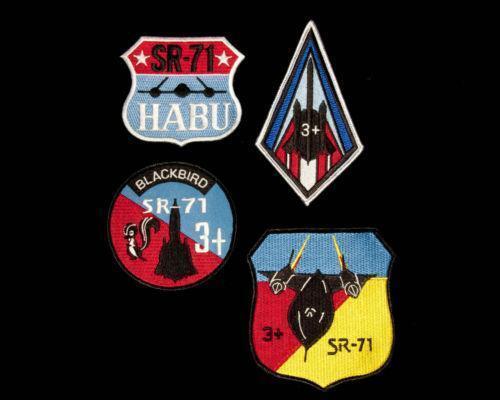
25 notes
·
View notes
Note
top 5 horror book recommendations? it's spooky season and i need to get my read on...
Hell yeah! Gonna break this down a little. First an obligatory rehash of books I always recommend for this, these are like all-time faves for me
Wounds/North American Lake Monsters by Nathan Ballingrud - can't choose between these two, so they're tied for my favorite single author short story collection. Nathan Ballingrud is one of my favorite writers of all time
Her Body and Other Parties by Carmen Maria Machado - a very very close second for my favorite single-author short story collection. Machado is a beautiful writer and finding an author writing such powerful horror from a queer woman's perspective was world changing for me.
The Haunting of Hill House by Shirley Jackson - COME ON!!!! You might have already read this but consider reading it again! Absolute classic.
The Cipher by Kathe Koja - dark, fucked up meditation on art and addiction and toxic relationships. I think about this book all the time. A guy finds a weird hole in his apartment basement and then everything goes wrong (first slowly and then very very quickly)
Red X by David Demchuk - talked about this a lot before too but I really do love it. Fictional story inspired by real life serial killings that took place in Toronto's gay village over decades. The author inserts essays throughout the book that makes it part memoir as well. A supernatural story about real queer trauma.
--
Okay with that out of the way, here's some recommendations for stuff I think would be fun for Halloween specifically
Echoes edited by Ellen Datlow - OKAY CHEATING I ALSO RECOMMEND THIS ALL THE TIME BUT IT'S A PERFECT OCTOBER BOOK!!! Fuck-off huge ghost story anthology. Huge range of tones, pretty diverse group of contributing authors, it's my all-time favorite anthology.
Slewfoot by BROM - this one's got major autumn vibes. It's a story of a woman in Puritan New England who's accused of witchcraft. It's also a story about the devil. Kind of. The print version has really amazing paintings by the author, but I've heard this is also good in audio.
Come Closer by Sara Gran - this is a great little novella. Possession story that really packs a punch. I can't really say much more than that, but it's not a huge time investment and I think it's really worthwhile.
Carmilla by Joseph Sheridan LeFanu - if you can, get the version edited by Carmen Maria Machado (she adds in some great footnotes and it has some neat art too). This is a classic and also quite a brisk read. The original lesbian vampire story.
Silver Nitrate by Silvia Moreno-Garcia - here's a new release for you! I always watch a ton of horror movies in October, and if you're anything like me maybe you'll want to read a horror novel about horror movies. This story follows a female film editor in 90s Mexico and her washed up actor friend as they help a retired filmmaker complete his famously unfinished last film, which he had been making with a former Nazi occultist before strange misfortunes and the occultist's mysterious disappearance forced production to shut down.
Okay that was double the amount of recommendations requested so I'm stopping here. Haha don't look in the tags don't worry about it there's nothing there you're crazy
#ALSO YOU SHOULD READ THE LAST DAYS OF JACK SPARKS BY JASON ARNOPP. GREAT ON AUDIO#ALSO THE HELLBOUND HEART BY CLIVE BARKER WHICH IS THE NOVELLA HELLRAISER WAS BASED ON#ALSO RING SHOUT BY P DJELI CLARK WHICH IS ABOUT BIRTH OF A NATION AND THE KKK BEING LITERAL DEMONS#ALSO THE BALLARD OF BLACK TOM BY VICTOR LAVALLE WHICH IS A BLACK RETELLING OF THE HORROR AT RED HOOK#ALSO THE RETURN BY RACHEL HARRISON WHICH IS A BOOK ABOUT FEMALE FRIENDSHIP BUT ALSO LIKE. COMING BACK WRONG#ALSO HOW TO SELL A HAUNTED HOUSE BY GRADY HENDRIX WHICH WILL MAKE YOU LAUGH BUT ALSO WILL MAKE YOU HATE PUPPETS#ALSO THE GOOD HOUSE BY TANANARIVE DUE WHICH IS A HAUNTED HOUSE STORY ABOUT BREAKING CYCLES OF GENERATIONAL TRAUMA#ALSO NIGHT OF THE MANNEQUINS BY STEPHEN GRAHAM JONES WHICH IS A FUN AND SHORT NOVELLA ABOUT A HORROR BUFF TEEN VS. WELL. THE MANNEQUINS.#book recs
21 notes
·
View notes
Text
13 books
What’s up readers?! How about a little show and tell? Answer these 13 questions, tag 13 lucky readers and if you’re feeling extra bookish add a shelfie! Let’s Go!
Tagged by @quarkscooljacket
This is perfect because I had an extremely slow start to the year in terms of reading and then SUDDENLY in the last few weeks I got my library card un-blocked and then maxed out my reservations and am now reading a bunch of books!!!!!!!
1) The Last book I read:
Question 7 by Richard Flanagan! I extremely liked it! Very contemplative novel/nonfic/memoir mishmash threading through such things as the way scifi writers & physicists prefigured & led to & failed to prevent the bombing of Hiroshima, his father being a POW in Japan who almost certainly would not have survived (and had him!) if the bombs had not been dropped, the history of Tasmania, his own near drowning while kayaking in the Franklin river, and the way history and memory shapes us and is eternally carried forward with us while also being forgotten/rewritten/impossible to pin down for certain. At least, that's my best go of describing this book.
2) A book I recommend:
This is... so open-ended... if you want to identify native trees in Victoria and nearby areas I would recommend Leon Costerman's Native Trees and Shrubs of South-Eastern Australia lmao. I really like The Golem and the Jinni by Helene Wecker, a historical fiction/urban fantasy book about a golem and a jinni living in immigrant communities in New York in the early 1900s, and also the sequel.
3) A book that I couldn’t put down:
Not a book per se but one of the webcomics I got into relatively recently is What happens next https://whathappensnext.webcomic.ws/ which reminds me a bit of Nevada by Imogen Binnie except if all of the characters were youtubers and/or tumblrinas and either involved in a murder or just big into true crime (in universe, fictional). It's very gripping. Of course now that I'm caught up there's the usual wait for updates but such is life.
I also read The Wicked + the Divine last week, since I'd never previously read the final 2 volumes, and that was good. I'm glad to find out I liked the ending. Comics are always a quick read but nevertheless some are more action-packed and fast paced than others lmao, and I just ripped through these in every spare second.
4) A book I’ve read twice (or more):
Naomi Novik is probably my most read author because I've read most of her books twice or more... So far I've read Spinning Silver & His Majesty's Dragon three times each; those are 2 of my absolute favourites. I've read most of the rest of the Temeraire series 2 or 3 times too but few of them grab me quite as much as the first one, & I read the first Scholomance book twice. I feel like I should reread Uprooted because that's the only one of her books I've not liked (though some of the duller Temeraire books get a bit of a leg-up from being in a series with other books I really like lol); since I only remember vague impressions of it now, which might not be accurate, I would like to see if my feelings have changed, or if not, figure out more specifically what I didn't like about it.
5) A book on my TBR:
Praiseworthy by Alexis Wright also happens to be one of the books I borrowed!! It was mentioned on a podcast along with Question 7 and Search History (currently reading, q12) so that is how I found out about these 3 books and was compelled to reserve them. However, currently I am daunted by how fat it is (700+ pages) so it's just sitting on my bedside table and I am... reading the shorter books first lmao.
I will also leave the blurb copypasted from @quarkscooljacket's answer:
Praiseworthy is an epic set in the north of Australia, told with the richness of language and scale of imagery for which Alexis Wright has become renowned. In a small town dominated by a haze cloud, which heralds both an ecological catastrophe and a gathering of the ancestors, a crazed visionary seeks out donkeys as the solution to the global climate crisis and the economic dependency of the Aboriginal people. His wife seeks solace from his madness in following the dance of butterflies and scouring the internet to find out how she can seek repatriation for her Aboriginal/Chinese family to China. One of their sons, called Aboriginal Sovereignty, is determined to commit suicide. The other, Tommyhawk, wishes his brother dead so that he can pursue his dream of becoming white and powerful. This is a novel which pushes allegory and language to its limits, a cry of outrage against oppression and disadvantage, and a fable for the end of days.
6) A book I’ve put down:
The most recent book I decided I did not want to finish is The Female Man by Joanna Russ. It sounded conceptually cool but I was just finding it way too hard to follow or care about. Too many sections where I couldn't figure out which character/s' perspective it was or whatever. I'm sure there's other books I didn't finish before they became overdue and I had to return them but can't remember, I usually want to finish them eventually. Whether I will get around to it is another matter.
7) A book on my wish list:
I don't normally buy books these days, but nevertheless tempted by A Vast, Pointless Gyration of Radioactive Rocks and Gas in Which You Happen to Occur, edited by the Daniels. It looks extremely interesting and also extremely pretty...
8) A favorite book from childhood:
Hmmmm. I guess I did choose my name from The Wind on Fire trilogy by William Nicholson. Definitely up there among my favourite childhood books.
9) A book you would give to a friend:
Another very open ended one...... this depends so much????? what friend... what occasion... idk... there are books I do kind of want to give people but either I haven't decided or it's supposed to be a surprise and they may see this. although recently I have been incepting Lauren with my impeccable borrowing tastes, reading my library books after me is surely the same thing right??
10) A book of poetry or lyrics that you own
Ismene's Survivable Resistance by Claire Gaskin... she is one of my favourite poets, and I rly like the concept of this book, and I saw her do a reading of some of the poems! However I think my favourite poems by her are ones that are not in this book.
11) A nonfiction book you own:
Hmm... Evolution's Rainbow by Joan Roughgarden is an interesting book published in 2004 about the diversity of sexual and gender variation in the world. The first section is about other animals, and especially about the ways human biologists have imposed ideological frameworks in classifying them; the middle section is about human intersex variation and biology; and the third section is about human cultural sex and gender roles throughout history.
12) What are you currently reading:
Search History by Amy Taylor. About the dating life of a classic mildly messy millennial woman. In this case she goes through the facebook profile of the most recent guy she starts dating and then finds out that his ex girlfriend died, and then goes through the accounts and photos of the ex girlfriend and gets a bit obsessed with her, but has to not let on to the new guy that she has done this deep dive. It's okay! Enjoyable, pretty fast to read, some funny bits and observations and whatnot, but not particularly a stand out read. She is not as much of a freak as I expected she would be when I started reading it, which is both a relief and also a disappointment. So far everyone seems to just be normal mildly flawed people doing overall reasonable things imperfectly, and the conflict is just navigating life's complexity (there's a lot about everyday sexism though). Mostly I just keep thinking how glad I am to not be a heterosexual woman or ever had to attempt online dating/app dating, which are both quite boring and excessively smug things to feel, however, I am simply a bit boring and smug. Anyway I'm only halfway through, I'm expecting/hoping there'll be some twists or something. Maybe about the boyfriend...?
update: was talking to some friends about it this arvo and they said not only that it does get crazier, but ALSO that supposedly it's a modern telling of Rebecca, which I have not read but have now reserved lmao
13) What are you planning on reading next?
I have borrowed all of Delicious in Dungeon and am very excited to start them! Also the next books I have to read for my book clubs are Marlo by Jay Carmichael, which I'd better get onto as it is in less than 2 weeks, and Hijab Butch Blues by Lamya H, which was one of the ones I put on the list myself and am very excited to read (I previously started it and got too busy to finish it but was rly enjoying it so keen to get further), but I actually still have over a month for that one since I can't make this month's meeting for that book club.
As for a shelfie... well here is a photo of all the plant reference books in my desk drawer for quick reference while working (though there's really only 4 I use very often, plus the australian standards on the side there):

Tagging (with ZERO pressure or obligation): @thesleepybabesclub @depthchargeforcutie @petricorrosion @andilovethisnovemberlife @dogelectedmayor @aesterea @commander-diomika @auntytim @zinjanthropusboisei @red-thorn
7 notes
·
View notes
Text
i was at the library earlier, with the idea of picking up Orientalism by Edward Said (which i found, quite interesting so far), but the section it was in was amidst the various asian histories, so i decided to look around for anything interesting
the first section i checked out was korea, because i'm interested in reading more about korean history. unfortunately, every book in the section was:
haha those funny north koreans
american soldier memoirs from the korean war
north korean refugee memoirs
let's condense the nation's entire history into a tiny page count
north korea is the worst nation on earth and they deserve harsh military intervention
like i know why it's this way but it's frustrating that writing focused on the region with a proper focus on the people of the region and also sympathetic to them is so hard to find. there wasn't a single book about north korea that treated them like human beings
7 notes
·
View notes
Text
David Bowie employed his artistic endeavours as a means to delve into the depths of his profound interests, among which was his enduring fascination with Buddhism and broader Eastern philosophy. His exploration of these themes became a distinctive thread woven into the rich tapestry of his creative expression.
Bowie was introduced to the power of Buddhism and other Eastern philosophies by his older half-brother, Terry Burns, who had a tremendous impact on how his life and career would turn out. Burns also opened Bowie’s mind up to total creativity with the works of Beat Generation writers such as William S. Burroughs, modern jazz, and even the occult. Many of what would become his artistic hallmarks can be traced back to these formative influences.
In the early years, when Bowie was still trying to find his feet as an artist, his fascination with Buddhism made its way into his work. The first song to contain his interest in religion is ‘Silly Boy Blue’ from 1967’s self-titled debut album. Years later, Bowie would claim that he wrote the song ‘Karma Man’ about the ongoing strife between Tibet, the home of the Dalai Lama, the leader of ‘Yellow Hat’ Tibetan Buddhism, and China, who annexed it in 1951.
Bowie developed his interest in Tibetan Buddhism in 1965. In addition to what his brother showed him, this materialised after reading Nazi SS Sergeant Heinrich Harrer’s 1952 memoir Seven Years in Tibet. It retold his experiences in the country between 1944 and the Chinese annexation.
Speaking to Melody Maker in 1966, Bowie outlined his love for Tibet, stating: “I want to go to Tibet. It’s a fascinating place, y’know. I’d like to take a holiday and have a look inside the monasteries. The Tibetan monks, Lamas, bury themselves inside mountains for weeks and only eat every three days. They’re ridiculous – and it’s said they live for centuries.”
Although Eastern philosophy and Buddhism greatly influenced the counterculture of the 1960s, Bowie was serious in his dedication to the faith, and it would remain for decades after the zeitgeist changed. In 1966, he visited the North London Buddhist Centre, Tibet House, and spoke to one of its teachers, Chime Yong Dong Rinpoche, with whom he would become lifelong friends.
Introducing ‘Silly Boy Blue’ at the Tibet House Benefit in 2001, Bowie explained: “I stumbled into the Buddhist Society in London when I was about seventeen. Sitting in front of me at the desk was a Tibetan lama, and he looked up and he said, ‘Are you looking for me?’ He had a bad grasp of English and, in fact, was saying, ‘Who are you looking for?’ But I needed him to say, ‘You’re looking for me.’ It’s absolutely true!”
Bowie recalled: “So he became my friend and teacher for quite some time. His name is Chime Yong Dong Rinpoche and he now is head of [he was Curator of Ancient Tibetan Manuscripts] at the British Museum in London. This was ’65, ’66. That’s when I met him. Around that time, I wrote this next song… ‘Silly Boy Blue’.”
Bowie also introduced Rinpoche to his friend Tony Visconti, who also became his student. Looking back on their significant first meeting, Lama Chime Tulku Rinpoche told The Telegraph in 2016: “I said, ‘Come in, young man. Why did you come to see me?’ He said, ‘I want to become a monk.’ I asked him, ‘What is your talent?’ And he said music. I said, so then don’t become monk; you do the music. And from that day, that is what he did."
youtube
#david bowie#silly boy blue#buddhism#eastern philosophy#karma man#1950s#50s#1960s#60s#tibet#tibetan buddhism#dalai lama#china#seven years in tibet#heinrich harrer#tony visconti#guru rinpoche#rinpoche#chime yong dong rinpoche#buddhist#Youtube
7 notes
·
View notes
Text
to the boy who sought freedom — aot
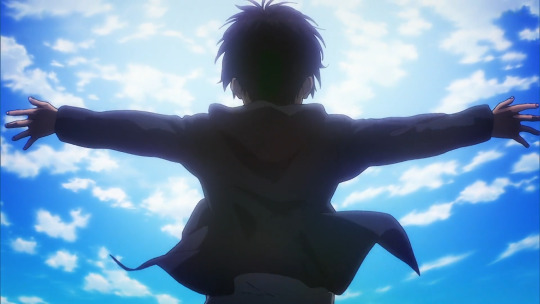
genre: angst
this was an existing work i've done about 2(?) years ago and thought of posting it here as well

ㅤㅤㅤㅤThis world did not deserve such past, such destiny
yet this world did not deserve this kind of salvation.
The winds which had so long been from the north-west began to blow from the west itself and every morning when the sun peeked out from the distant mountains, it painted the whole city a different shade of orange. In the early days of apocalypse, only the high-standing church within Mitras could be touched by the rays at sunrise for Wall Sina had blocked every corner and provided hours of unwanted shade until the afternoon when the sun was at its highest peak which lasted only for a few hours before it turned back into a cave after the sun went past the church, its high stature blocking everything. What used to smell like fresh morning dew smelled like untilled soil. The buildings had become more barren, drier, and silent. Nothing was the same as before anymore.
Yet this was supposed to be peace.
People who used to bustle around the town square only rubbed shoulders with each other when there was a public marshal of peace or when the bakery from the fifth block had gone on sale for medium-quality bread—in which it wasn’t much of a big event compared to the occasional soup kitchens ran by local restaurants that had the worst sale for the week considering that they had been willing to give out free food. The grocery stores never ran out of stock for there was already unlimited access to the fields, thus an easily accessible source of income.
Because of this peace, no one passed by the regiment bulletins anymore. It was a long-forgotten landmark, rotting in mold and buried in vines. Anything that had to do with the perilous past of Paradis had been erased completely, giving a whole different age within the people of Eldia that lived within the comforts of the island. It was as if its own people had chosen to pretend yesterday’s nightmare hadn’t existed. A Paradis, completely free of its own yesteryears. It was the Paradis that Eren Jaeger had wanted. The Paradis that was independent from the shackles of oppression; a freestanding country.
Yet who was Eren Jaeger to the minds of today’s people? To the minds of those children who had grown within the interiors of the walls, far from the hell, clueless to the legacy that each veteran had carried. Some looked up to him as a hero; a saint. But they could only be counted by a mere hundred, maybe even less. To most, he was a judas. A sociopath who had only used freedom as an excuse to do extremely questionable things. A mass murderer. Genocidal. That was what Eren Jaeger was to humanity.
But not for those who had fought alongside him, fought for him, and fought against him. His friends. Had they been the reason why this so-called genocidal man had countless days where he excruciatingly had second thoughts before committing the unthinkable? Yes, they were. It had pained him, killed him slowly deep inside. It crushed him. He had shouldered everything yet this was what the world had seen him. Although during Eren Jaeger’s wake, it was a lot worse.
It was dark times for both him and the rest of the Survey Corps. Each day mattered and each breath counted as their last. Everyone had thought their problem was as simple as swinging blades and slaying titans whom neither had known more than what the textbooks had told them. It was just a simple kill or be killed situation. Yet as time went by, truths have been revealed, secrets were dug out from the deepest depths of Eren’s family basement and everyone knew there was something more and worse out there. It was only after the medal ceremony when he had started corrupting.
The past, Ymir’s memoirs and the unwanted visions of King Fritz and his lies upon the people. The present, the death of countless soldiers, all for the sake of expecting to find relief from the answers in his house in Shiganshina only for it to be the opposite. The future, an untold nightmare that he was unsure of. He feared for everything, for everyone. No one could expect a 15-year-old to handle everything in such a frail, small vessel yet he kept everything for himself.
Everything happened in a whiff; Marleyans swooping in the shores of the island, identifying themselves as Eldians who also wish to free themselves from the clutches of the opposing nation, speaking through experiences and willing to educate them on a lot of things that they had been left out on. They went back to being babies that needed to be taught potty lessons despite all the knowledge they already had. There was always still more, it was never enough.
Wagons were replaced with modified pulleys. Fields were tilled and dug to make way for train tracks. Simple rifles were replaced with more efficient ones. The sand was cleared to accommodate a dock. Along with these, personalities and childishness were replaced with maturity. Everyone argued less, and strategized more. During these times, he was being stabbed more slowly with new memories as years went by. Within the crevices of his mind, it pained him. It pained his young self.
How he wished things would be the same as they were back then. How he wished freedom was already at his fingertips without the need to sacrifice everything. How he wished he could still be with everyone else right after he carries out his plans. Each day was making it more unbearable for him.
Fight, he said right in front of the mirror. It had been years yet he had always carried the same burden, only worse. His friends looked at him in a manner where he was someone who had chosen an entirely different path from the others and he did. There had been no other way; it was inevitable. He was now the villain, and they would be the heroes, that was how he wanted it to go. That is how it should go.
He stood, face glancing out at the frosted window, waiting for his next step to walk towards him and eyed at every building. It brought him back so many memories, so many emotions but it showed neither on his face. It was stoic. His eyes filled with sadness.
How much longer shall he deal with this pain?
How much longer should he bear with the truth that he could no longer bring back the past no matter how much he wanted to?
How much longer until those who are precious to him would look him in the eye with such pain?
How much longer will it take until he encloses himself again, in the darkness for the last time, not wanting to hear the screams and pleads of people?
“Eren, they’re waiting for you inside the room,” Floch had spoken a few inches away from him. He slowly turned, returning back the emotionless look from his eyes, pretending he had no care for everything but to carry out his plans.
He detested every step. The hallway seemed darker, as if it would gobble him up whole. His heart felt as if it was being clenched. His lungs suddenly wanted to stop breathing. His fists balled tighter and shivered for what was about to come. He was alone, cold, abhorred by those who he loved.
“𝘐 𝘩𝘢𝘷𝘦, 𝘢𝘯𝘥 𝘢𝘭𝘸𝘢𝘺𝘴 𝘸𝘪𝘭𝘭 𝘵𝘳𝘦𝘢𝘴𝘶𝘳𝘦 𝘵𝘩𝘰𝘴𝘦 𝘸𝘩𝘰 𝘴𝘵𝘰𝘰𝘥 𝘣𝘦𝘴𝘪𝘥𝘦 𝘮𝘦.
𝘐 𝘩𝘢𝘷𝘦, 𝘢𝘯𝘥 𝘢𝘭𝘸𝘢𝘺𝘴 𝘭𝘰𝘷𝘦𝘥 𝘵𝘩𝘰𝘴𝘦 𝘸𝘩𝘰 𝘩𝘢𝘷𝘦 𝘭𝘰𝘷𝘦𝘥 𝘮𝘦.
𝘐 𝘩𝘢𝘷𝘦, 𝘢𝘯𝘥 𝘢𝘭𝘸𝘢𝘺𝘴 𝘸𝘢𝘯𝘵𝘦𝘥 𝘵𝘰 𝘬𝘦𝘦𝘱 𝘤𝘭𝘰𝘴𝘦 𝘵𝘩𝘰𝘴𝘦 𝘸𝘩𝘰 𝘤𝘢𝘳𝘦 𝘧𝘰𝘳 𝘮𝘦.
𝘉𝘶𝘵 𝘯𝘰𝘸 𝘵𝘩𝘦𝘺 𝘢𝘭𝘭 𝘥𝘦𝘵𝘦𝘴𝘵 𝘮𝘦, 𝘢𝘯𝘥 𝘐 𝘸𝘢𝘯𝘵 𝘵𝘰 𝘵𝘦𝘭𝘭 𝘵𝘩𝘦𝘮 𝘵𝘩𝘢𝘵 𝘐 𝘴𝘵𝘪𝘭𝘭 𝘤𝘩𝘦𝘳𝘪𝘴𝘩 𝘵𝘩𝘦𝘮.
𝘐 𝘤𝘩𝘦𝘳𝘪𝘴𝘩 𝘦𝘷𝘦𝘳𝘺 𝘮𝘰𝘮𝘦𝘯𝘵.
𝘌𝘷𝘦𝘳𝘺 𝘮𝘦𝘮𝘰𝘳𝘺,
𝘌𝘷𝘦𝘳𝘺 𝘱𝘢𝘴𝘵,
𝘌𝘷𝘦𝘳𝘺 𝘱𝘳𝘦𝘴𝘦𝘯𝘵,
𝘌𝘷𝘦𝘳𝘺 𝘧𝘶𝘵𝘶𝘳𝘦 𝘵𝘩𝘢𝘵 𝘐 𝘤𝘰𝘶𝘭𝘥 𝘴𝘦𝘦 𝘸𝘪𝘵𝘩 𝘵𝘩𝘦𝘮.
𝘐 𝘸𝘢𝘯𝘵𝘦𝘥 𝘵𝘰 𝘴𝘦𝘦 𝘵𝘩𝘢𝘵 𝘧𝘶𝘵𝘶𝘳𝘦 𝘸𝘪𝘵𝘩 𝘦𝘷𝘦𝘳𝘺𝘰𝘯𝘦.
𝘐 𝘸𝘢𝘯𝘵𝘦𝘥 𝘵𝘰 𝘤𝘩𝘦𝘳𝘪𝘴𝘩 𝘵𝘩𝘦 𝘴𝘦𝘢 𝘸𝘪𝘵𝘩 𝘦𝘷𝘦𝘳𝘺𝘰𝘯𝘦.
𝘐 𝘸𝘢𝘯𝘵𝘦𝘥 𝘵𝘰 𝘭𝘢𝘶𝘨𝘩 𝘮𝘰𝘳𝘦 𝘸𝘪𝘵𝘩 𝘦𝘷𝘦𝘳𝘺𝘰𝘯𝘦.
𝘐 𝘸𝘢𝘯𝘵𝘦𝘥 𝘵𝘰 𝘥𝘰 𝘢 𝘭𝘰𝘵 𝘮𝘰𝘳𝘦 𝘵𝘩𝘪𝘯𝘨𝘴 𝘸𝘪𝘵𝘩 𝘦𝘷𝘦𝘳𝘺𝘰𝘯𝘦.
𝘛𝘩𝘢𝘵’𝘴 𝘸𝘩𝘺 𝘐..
𝘛𝘩𝘢𝘵’𝘴 𝘸𝘩𝘺 𝘐’𝘮 𝘥𝘰𝘪𝘯𝘨 𝘵𝘩𝘪𝘴.
𝘚𝘰 𝘵𝘩𝘢𝘵 𝘦𝘷𝘦𝘳𝘺𝘰𝘯𝘦 𝘦𝘭𝘴𝘦 𝘤𝘰𝘶𝘭𝘥 𝘭𝘪𝘷𝘦 𝘵𝘩𝘦𝘴𝘦 𝘥𝘳𝘦𝘢𝘮𝘴 𝘵𝘩𝘢𝘵 𝘐 𝘩𝘢𝘷𝘦.”
“I still want to be with everyone.”
There they sat by the table along with the child who had taken away one of the people who were precious to him. He wanted to feel angry, beat her up. But he knew she was just another victim from the harsh reality that they lived in.
The conversations went on. Lie after lie, he spun each word from every fake feeling he needed to have right now. He had made scenarios in his head that they were nothing more but obstacles in his path—which was impossible. He had dreaded for this moment, yet he had to speak.
“Mikasa,
Ever since were little,
𝐈’𝐯𝐞 𝐚𝐥𝐰𝐚𝐲𝐬 𝐡𝐚𝐭𝐞𝐝 𝐲𝐨𝐮.”
Lies. All lies.
It pained him to let each word slip from his lips. He couldn’t even process what he was doing anymore and just let himself fake anger. It went on like a nightmare. He had beaten up Armin and Mikasa was left off crying. He wanted to apologize as soon as he had turned his back. It was funny how he was hurting those that he had wanted to protect the most. Everything went on like a blur. He tried not to look everyone else’s way. Just like how he planned it to be; his friends fixing the false path that he had created. He had everyone hate him for the sake of rewriting history. He didn’t expect to be the hero nor the villain in the people’s perspective after he died. All he wanted was for everyone to be free. And he gave up his own freedom for that dream.
𝘛𝘩𝘦 𝘭𝘪𝘵𝘵𝘭𝘦 𝘣𝘰𝘺 𝘸𝘩𝘰 𝘸𝘢𝘯𝘵𝘦𝘥 𝘵𝘰 𝘴𝘦𝘦 𝘣𝘦𝘺𝘰𝘯𝘥 𝘵𝘩𝘦 𝘸𝘢𝘭𝘭𝘴.
𝘛𝘩𝘦 𝘭𝘪𝘵𝘵𝘭𝘦 𝘣𝘰𝘺 𝘸𝘩𝘰 𝘸𝘢𝘯𝘵𝘦𝘥 𝘵𝘰 𝘭𝘰𝘰𝘬 𝘢𝘵 𝘵𝘩𝘦 𝘴𝘦𝘢.
𝘛𝘩𝘦 𝘭𝘪𝘵𝘵𝘭𝘦 𝘣𝘰𝘺 𝘸𝘩𝘰 𝘸𝘢𝘯𝘵𝘦𝘥 𝘵𝘰 𝘣𝘦 𝘩𝘢𝘱𝘱𝘺 𝘸𝘪𝘵𝘩 𝘦𝘷𝘦𝘳𝘺𝘰𝘯𝘦 𝘦𝘭𝘴𝘦.
𝘛𝘩𝘦 𝘭𝘪𝘵𝘵𝘭𝘦 𝘣𝘰𝘺 𝘸𝘩𝘰 𝘩𝘢𝘥 𝘯𝘰 𝘤𝘩𝘰𝘪𝘤𝘦 𝘣𝘶𝘵 𝘵𝘰 𝘨𝘪𝘷𝘦 𝘦𝘷𝘦𝘳𝘺𝘵𝘩𝘪𝘯𝘨 𝘶𝘱, 𝘦𝘷𝘦𝘯 𝘩𝘪𝘴 𝘰𝘸𝘯 𝘩𝘢𝘱𝘱𝘪𝘯𝘦𝘴𝘴, 𝘩𝘪𝘴 𝘭𝘪𝘧𝘦.
𝘛𝘩𝘦 𝘭𝘪𝘵𝘵𝘭𝘦 𝘣𝘰𝘺 𝘸𝘩𝘰 𝘰𝘯𝘭𝘺 𝘥𝘳𝘦𝘢𝘮𝘵 𝘰𝘧 𝘣𝘦𝘪𝘯𝘨 𝘢𝘳𝘰𝘶𝘯𝘥 𝘵𝘩𝘰𝘴𝘦 𝘸𝘩𝘰 𝘩𝘦 𝘭𝘰𝘷𝘦𝘥 𝘢𝘯𝘥 𝘵𝘩𝘰𝘴𝘦 𝘸𝘩𝘰 𝘭𝘰𝘷𝘦𝘴 𝘩𝘪𝘮.
𝘛𝘩𝘦 𝘭𝘪𝘵𝘵𝘭𝘦 𝘣𝘰𝘺 𝘸𝘩𝘰 𝘴𝘦𝘭𝘧𝘭𝘦𝘴𝘴𝘭𝘺 𝘴𝘢𝘤𝘳𝘪𝘧𝘪𝘤𝘦𝘥 𝘩𝘪𝘮𝘴𝘦𝘭𝘧 𝘣𝘺 𝘣𝘦𝘪𝘯𝘨 𝘴𝘦𝘭𝘧𝘪𝘴𝘩.
That was the Eren Jaeger that his friends knew.
#aot#attack on titan#angst#aot angst#eren jaeger#eren aot#eren angst#shingeki no kyojin#snk#snk spoilers#snk angst#shingeki no kyoujin eren#the rumbling
14 notes
·
View notes
Text
Bookblr Materlist
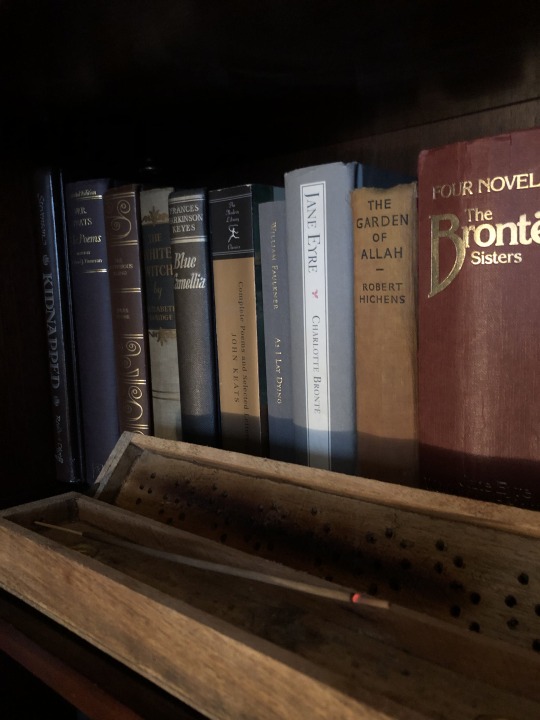

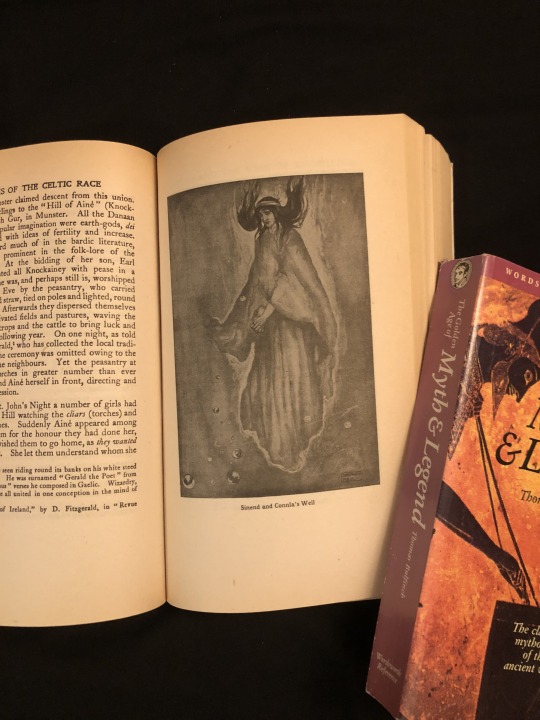
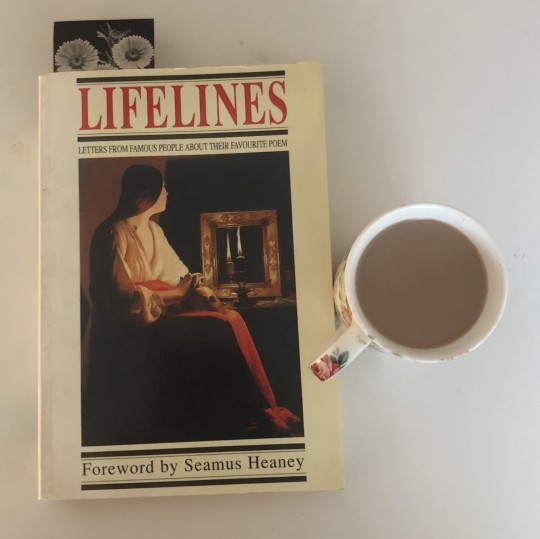

I took these pictures myself. Some of these books are old, some were just poorly handled over the years, and all were thrifted across the second-hand stores of Dublin.
Here I link every post I make on book reviews, book recs, book summaries, and book recommendations. I keep it up to date.
I own books of all genres, so from fiction, you can expect: high fantasy, urban fantasy, classic literature, modern classics, short story anthologies, poetry, translated fiction, Asian fiction, Middle Eastern fiction, North African fiction, African fiction, Western fiction, Irish fiction, myth and folklore retelling, historical fiction, murder mysteries/crime fiction.
And from non-fiction, you can expect: European history, African history, Irish history, Asian history, Middle Eastern history, Islamic history, biographies and memoirs (of classic authors, world travellers, queens, and empresses), science, female health, culture and anthropology, self-help, psychology, on writing, on reading, myth and folklore, travel memoirs.
Classic Asian Lit; Rashomon and Seventeen Other Stories by Ryunosuke Akutagawa, translated by Jay Rubin.
Classic Asian Lit; The Romance of the Three Kingdoms by Luo Guanzhong, translated by Martin Palmer.
Classic Asian Lit; Monkey: The Journey to the West by Wu Ch'eng-en, translated by Arthur Waley.
Biography of an Author; Mary Shelley by Miranda Seymour.
Modern Classic; The Secret History by Donna Tartt.
Penguin Modern Classic Short Story Collection; Part 1.
Penguin Modern Classic Short Story Collection; Part 2
Penguin Modern Classic Short Story Collection; Part 3
Penguin Modern Classic Short Story Collection; Part 4
Penguin Modern Classic Short Story Collection; Part 5
Home Library Pics:
Post One.
About Me
Reading & book quotes
Bookish Thrift Finds Masterlist
I reblog bookish content and since I have a home library I also make bookish content myself; aesthetic book pics, reviews, recommendations, quotes, excerpts, hauls and cats.
#nejj bookblr#book review#book recommendations#book rec list#booklr#studyblr#dark academia#light academia#chaotic academia#romantic academia#writing#literature#classic books#home library#cozycore#irish#moroccan#morocco#ireland#books
48 notes
·
View notes
Text
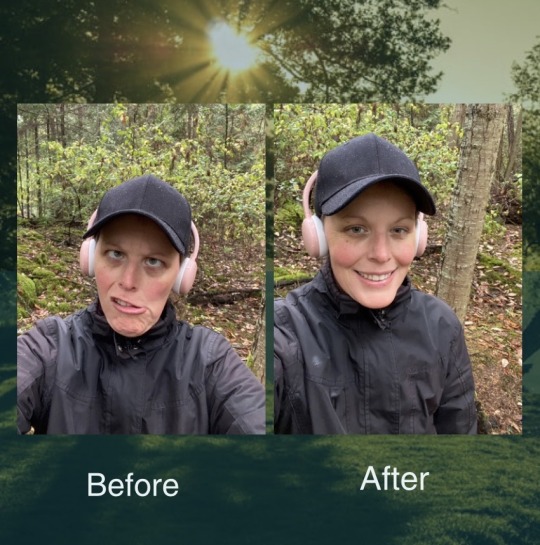
I went out in the pouring rain for my walk even though I did not want to go. I’m thinking the “before” and “after” photo should probably be reversed. lol. The last few days I’ve been really wiped out. My legs feel like lead weights. All I want to do is lay down and close my eyes. Yes. Eyes closed is the best feeling in the world right now. Going to do that - be back in 10 minutes.
Okay, I’m back.
I was just notified that the magazine I wrote my story for is now available for pre-order. Print copies will be sent out Oct 21. There will be digital copies available to buy as well. It’s a pricey magazine but I saw the first draft and it looks beautiful. There’s over 100 pages of quality content.

Wildfire Magazine contains personal essays, poetry, art and photography from those who were diagnosed with breast cancer under 50. If you fall in this demographic, I invite you to check it out and maybe submit something yourself!
www.wildfirecommunity.org
I watched a few more movies. The first one was Flora and Son. It’s set in Ireland. A young, tired Mother is having a frustrating time with her rebellious teenage son who keeps getting into trouble. It was recommended (by his parole officer?) that he finds a hobby. The Mother and son eventually bond over music. The acting was good. The music wasn’t bad, either. It was a good movie.
I also watched North of Normal which is based on the memoir by Cea Sunrise Person. It’s a Canadian flick. The movie was about really bad parenting as opposed to surviving the wilderness. The ending was anticlimactic but maybe a sequel will be picked up. (She wrote a second memoir called Nearly Normal.) The story itself is a bit hard to believe - I felt when she came back to “civilization” and regular school (as a young teenager), she handled it well. The adjustment was fairly easy for her, I guess. The movie tends to skip over the part where I’d find the most interesting - when she was living off the grid. I’m sure the book has a lot more information about that. The movie wasn’t bad, though. I liked it.
Today I watched Fool’s Paradise.That was one oddball film. It was supposed to be a comedy but I laughed out loud once and maybe snickered another time. It was ridiculous. Lots of cameos by big name actors but it wasn’t enough to carry the movie. When I read the reviews, it seemed like everyone either loved it or hated it. I don’t think it was terrible but it wasn’t good either. Not really sure what that was. lol.
Yesterday, we had Thanksgiving dinner and tonight we had leftovers. I haven’t been able to eat much as I’m having some stomach issues (pain, nausea) mostly in the mornings and early afternoon. Hopefully, that eases soon. If it’s not one thing it’s another. I talk to my family doctor tomorrow and the pain doctor on Wednesday.
I’m trying to find a new book to read that is easy. The book club book stinks and I can’t get into it. So, I’m going to make some ginger tea, turn on my heating pad and go through my book shelf and see what catches my eye.
7 notes
·
View notes
Note
Do you have some queer book recommendations, then? Regarding the recent post?
OH BOY DO I!
I'm a professional bookseller and try to get paid for my opinions but let's be honest, when someone asks for queer book recs you are going to struggle to shut me up two hours later
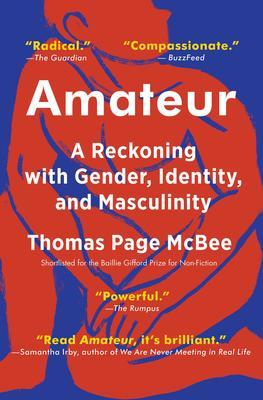
Amateur by Thomas Page McBee
This transcendent memoir chronicles the author's experience training to fight in a charity boxing match as an absolute novice--and by extension his exploration of masculinity as a transgender man. Beautiful writing about what it means to be a man in 21st-century America.
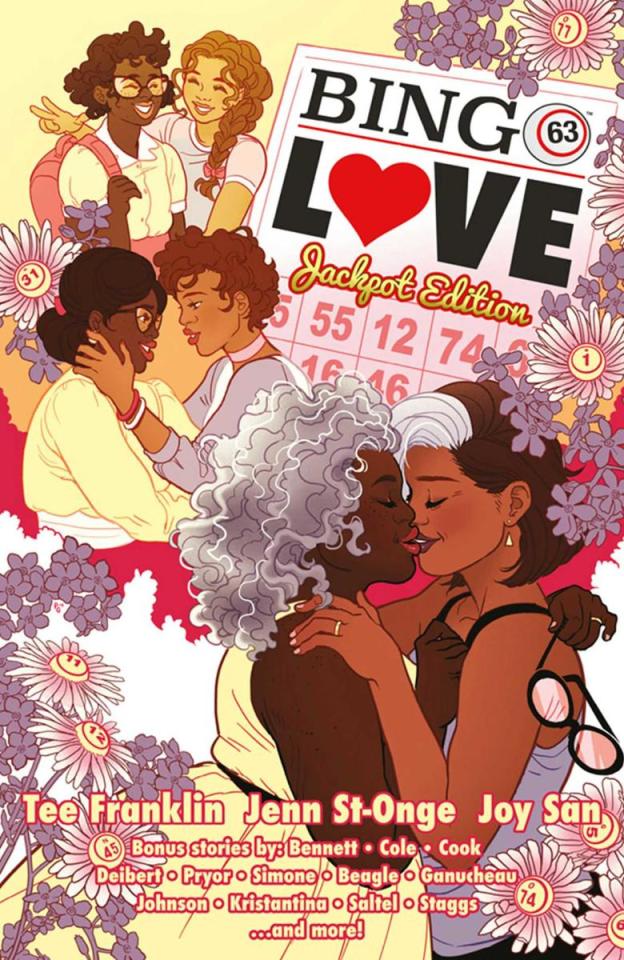
Bingo Love by Tee Franklin et al
Bingo Love made me cry on an Amtrak train. It's a wonderful romance about two women who fall in love as teenagers, but are separated by their families, only to come into each other's lives again when they are grandmothers.
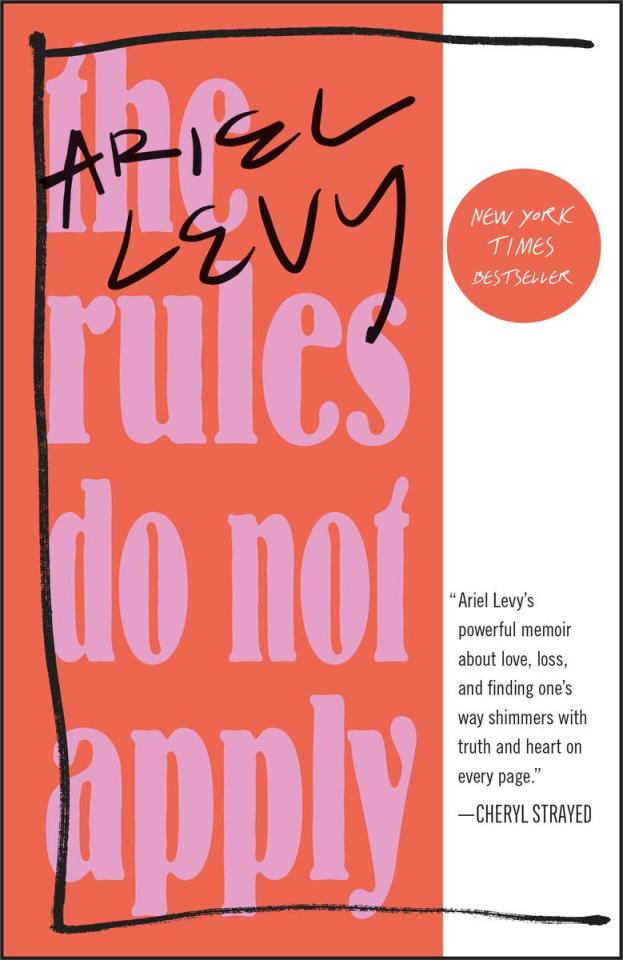
The Rules do Not Apply by Ariel Levy
Ariel Levy's blistering memoir is a beautiful piece of writing that centers around a time of her life that can only be described as devastating. Perhaps it is her journalistic training that keeps this story from feeling sentimental. I loved every word.
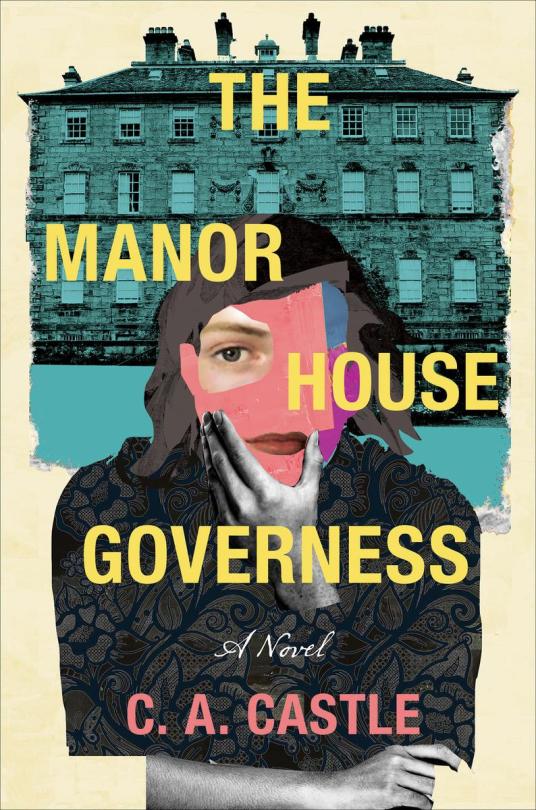
The Manor House Governess:A Novel by C A Castle
This is a modern queer take on Jane Eyre (which was never really my thing -- Heathcliff rules, Rochester drools) in which a gender queer young person takes a job as essentially a governess for the daughter of a wealthy British landholder. The household is full of mystery, including the girl's brooding older brother who our hero is undeniably drawn to.

Written on the Body by Jeanette Winterson
I've read this book so many times.
The reader never learns the gender of the narrator of this love story--which would feel like a gimmick in the hands of a lesser writer. Winterson uses the premise to explore the nature of love and self.
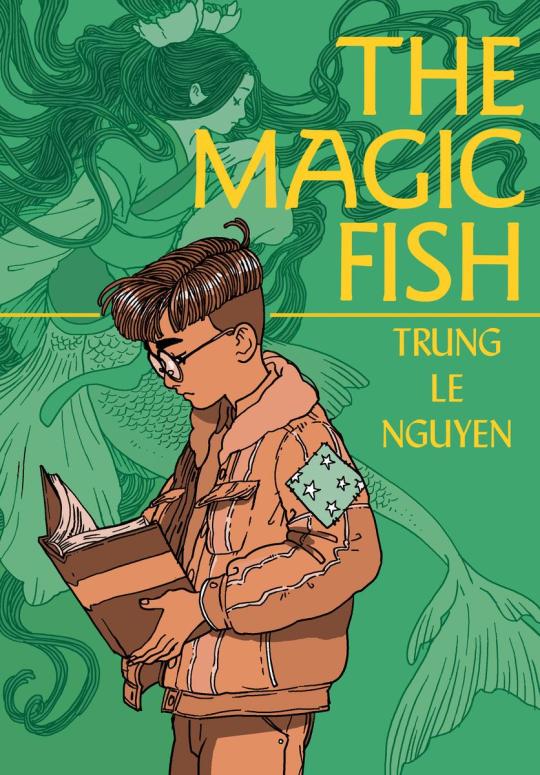
The Magic Fish (A Graphic Novel) by Trung Le Nguyen
This is a gorgeous coming of age story, full of art nouveau-esque illustration, fairy tales, immigrant longing and struggles, and young queer hearts just pulsing with life.

You Should See Me in a Crown by Leah Johnson
**read this one when you need the same feeling as you got from Red White and Royal Blue but with a little less sex**
This book charmed my pants off. Liz is a wonderful, memorable heroine, with a lot of obstacles in her way, but that doesn't stop her from finding her path forward. I laughed, I cried, I didn't want it to end.
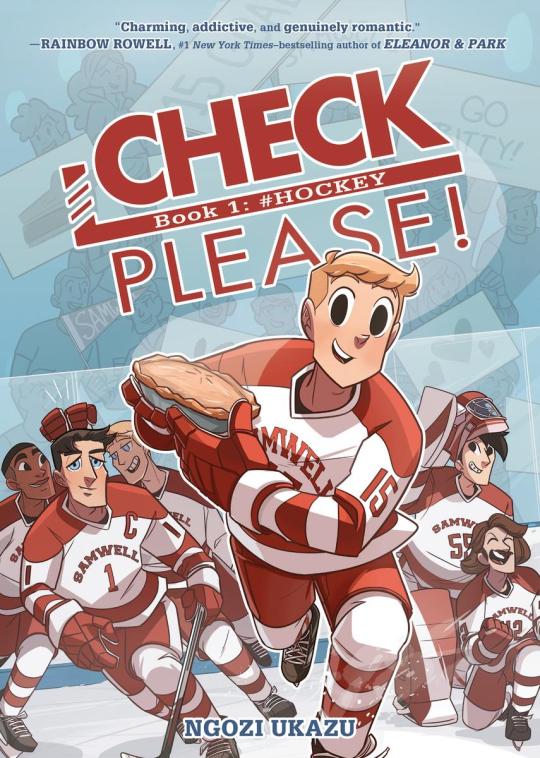
Check, Please! Book 1 by Ngozi Ukazu
**read this when you need the same feeling you got from Heartstopper but with a little more sex**
You don't HAVE to love ice hockey to be totally charmed by Eric "Bitty" Bittle, the newest member of Samwell University's men's hockey team, and by Jack Zimmerman, the team's moody, stern, and totally gorgeous captain. Along with Book 2, presented here are Bitty's 4 years as a college hockey player, and the lessons he learns about life--and himself--in that time.
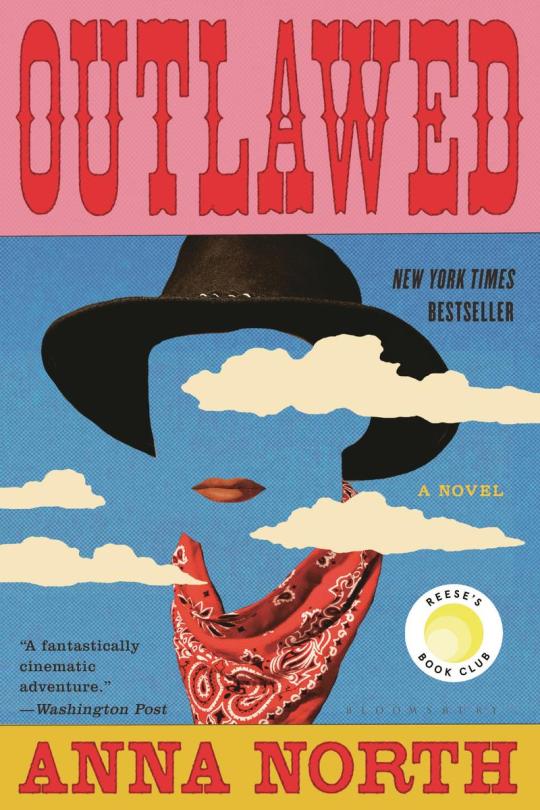
Outlawed by Anna North
A gender-bent, feminist, alternate universe Butch Cassidy & the Sundance Kid retelling, set in a world where the fledgling United States was decimated by a flu epidemic in the early 1800s. The remaining colonizer population is dedicated wholeheartedly to fertility and childbearing, so women (like Ada, our heroine) who cannot bear healthy babies are sent off to convents at best, or tried as witches at worst. She teams up with the Hole-in-the-Wall Gang, and her adventures begin.

The Space Between Worlds by Micaiah Johnson
High-brow science fiction that takes on issues of class (& related issues of race), corporate power, and personal identity.
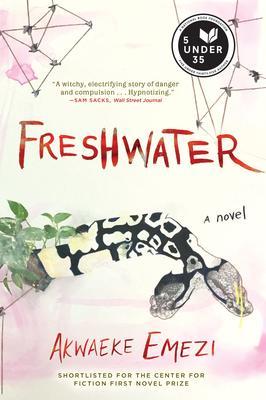
Freshwater by Akwaeke Emezi
A novel like none I've ever read before. Emezi drew from their own experiences for this narrative about self and power and sex, integrated with Nigerian folklore.

Mortal Follies: A Novel by Alexis Hall
A lesbian Regency romance narrated by Puck from A Midsummer Night's Dream? Yes please! A sexy, fun, fantastical tale that's kicked off with the protagonist falling under a curse that promises ever increasing scandal and danger.

The Jasmine Throne by Tasha Suri
A lush, thrilling sapphic fantasy set in an Indian inspired world full of dangerous magic and even more dangerous politics.

Mrs. S by K Patrick
Mrs S is gorgeous and casually devastating, a sexy slow burn obsessive forbidden queer love story. Every note is exactly right.
I'm stopping there cuz it's late and I've had a day but this is just pulling a fraction of the titles on my staff picks list.
#queer books#booksellers of tumblr#book recommendations#i could do this all day#please if you buy any of these don't get them from amzn#please do ask for them in your local library so your county knows there is interest in queer books
5 notes
·
View notes
Note
Hi!
Do you have recommendations for books about life in the Arctic Circle?
I’ve read quite a lot about the far north, but all from the perspective of European explorers/miners/prospectors and I would like to expose myself to the perspective of people for whom it is home.
I came to this thought because I watched Avatar recently, and I always find myself thinking about background and the world in which favorite stories take place. It is terribly sparse in building up the lives of the water tribes. I grew up in a place with long cold winters and my contact with that extreme has given me a strong awareness that there is a lot to surviving and thriving in that, and a lot more that I don’t even know to wonder about.
I really appreciate your writing on this blog, and I thank you for the effort you have put into it. :)
Not many strictly within the arctic circle, but if you mean Circumpolar people in general:
I have two collections of stories with historical and cultural notes for context: The Dall Sheep Dinner Guest, compiled by Wanni W. Anderson; and Ugiuvangmiut Quliapyuit/King Island Tales, compiled by Lawrence D. Kaplan. The Dall Sheep Dinner Guest (which focuses on the Kobuk region Inupiat) can be ordered pretty easily but Ugiuvangmiut Quliapyuit (which is specifically based in the King Island village; i'm actually related to one of the storytellers in this one) is out of print and when I managed to track down a copy it put me back about $60 USD for a secondhand paperback published in the 1980s. I'd recommend checking your local library and seeing if they can get either on a loan.
For personal accounts, consider Fifty Miles from Tomorrow, a memoir by William L. Iggiagruk Hensley, who played a pretty big role in Inupiaq history in the 1960s-70s; as well as Once Upon an Eskimo Time by Edna Wilder, who wrote down her mother Nedercook's dictated acount of pre-contact life in a Yup'ik village. Native elders are often interviewed and invited to talk for oral history projects, and it's not too difficult to find recordings or transcripts of these interviews online. Do not underestimate the vallue of these interviews and talks because of their less formal structure, they provide a wealth of easily accessible information and are in fact the traditionally prefered method of sharing and preserving history.
Life at Swift Water Place, by the aforementioned Wanni W. Anderson, is an interdisciplinary study of an Inupiaq site but the Kobuk River written to give insight to what life was in early contact.
I haven't had access to all these materials, and as I am Inupiaq and mainly take interest in Inupiaq culture and history, all of these are based in Alaska. You might stumble on other circumpolar peoples in searching these materials but I can't guarantee it and i want to make very clear this is not an exhaustive list. Happy hunting, and best of luck
60 notes
·
View notes